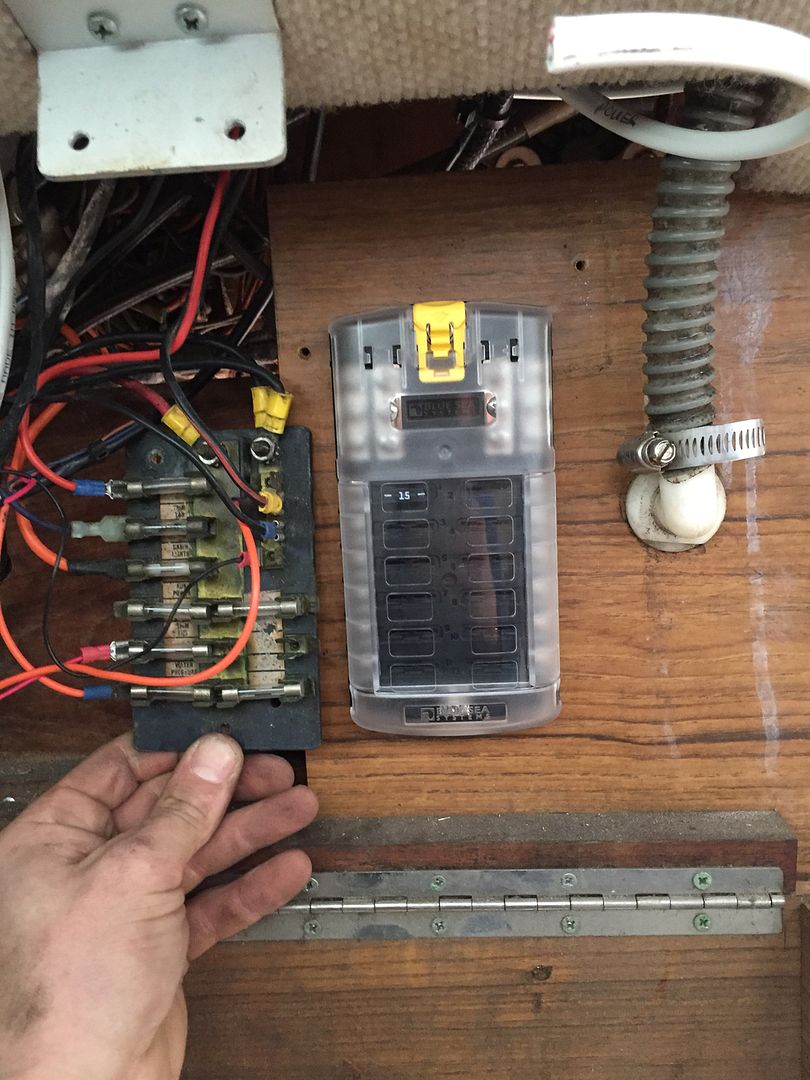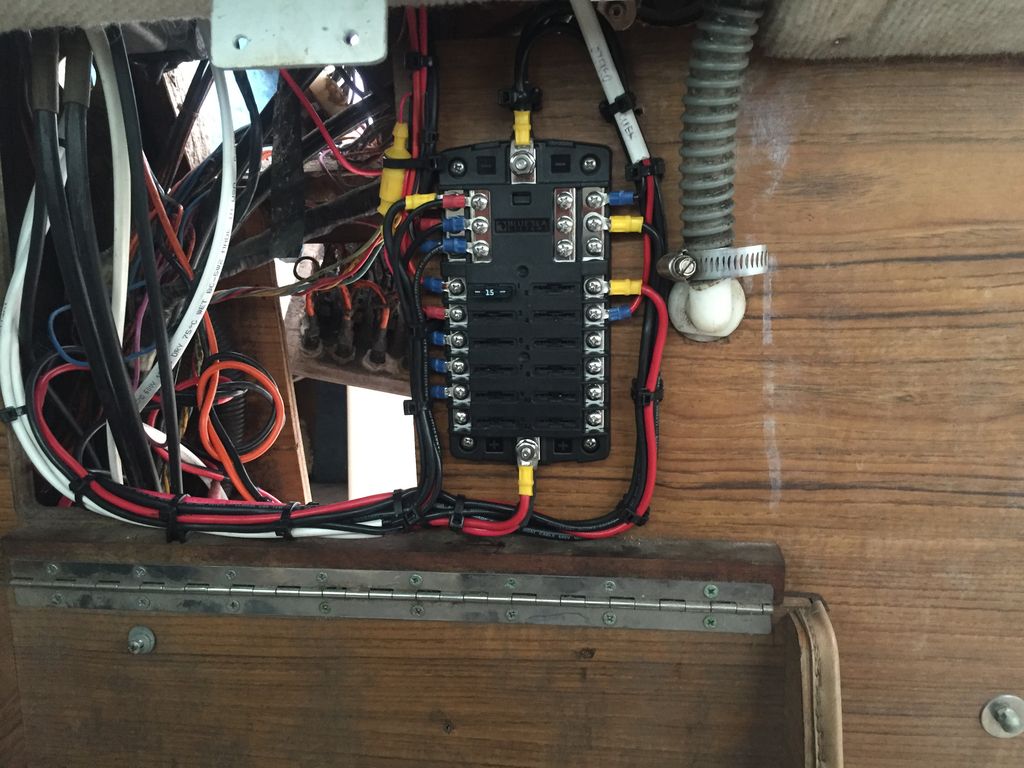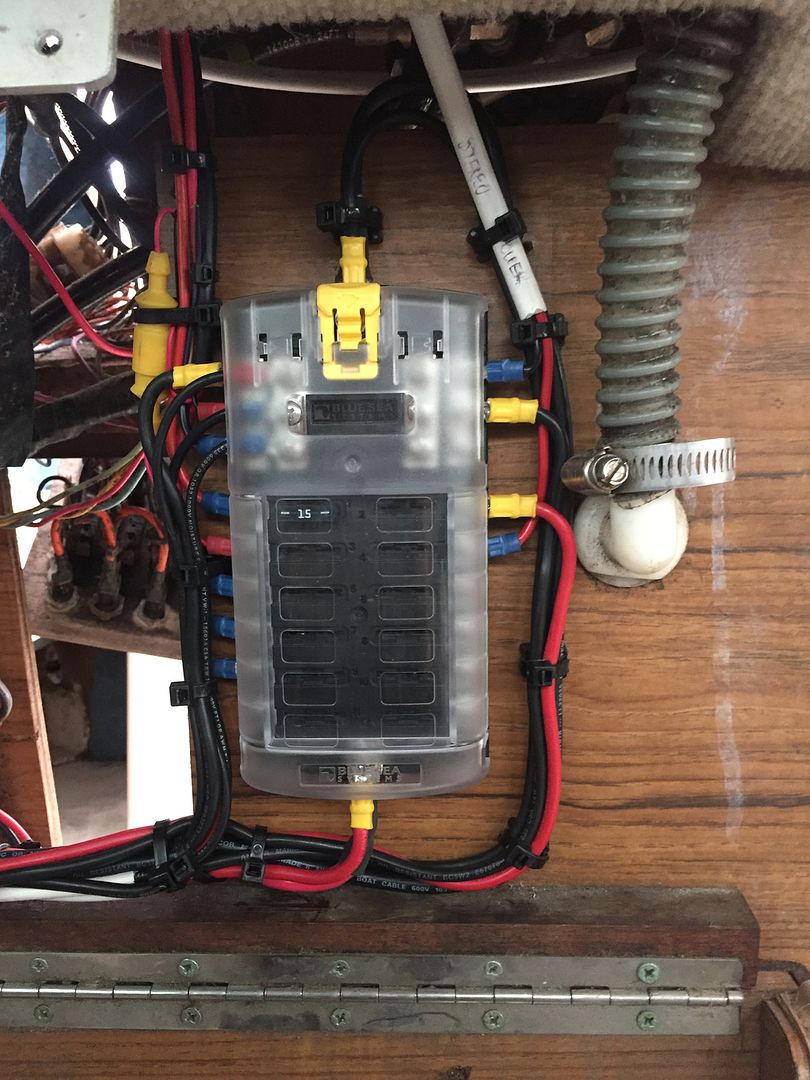After 10+yrs of ownership, I'm replacing the 32 yr old fuse block.
When removing it seemed like only (4) wires connected to it.
I was able to trace them as follows:
1) Cabin Power (wire going to a box located in the cabin on the port side)
2) Trim Tabs
3) VHF/GPS (Installed by myself)
4) Cabin Light (very small gauge wire)
Is there a wiring diagram for a '84 Offshore available?
I'm sure after 30yrs there are many wires not used anymore.
Looks like there is a 20A fuse under the dash....is this for the ignition (it's an I/O)?
Thanks in advance...........
When removing it seemed like only (4) wires connected to it.
I was able to trace them as follows:
1) Cabin Power (wire going to a box located in the cabin on the port side)
2) Trim Tabs
3) VHF/GPS (Installed by myself)
4) Cabin Light (very small gauge wire)
Is there a wiring diagram for a '84 Offshore available?
I'm sure after 30yrs there are many wires not used anymore.
Looks like there is a 20A fuse under the dash....is this for the ignition (it's an I/O)?
Thanks in advance...........




